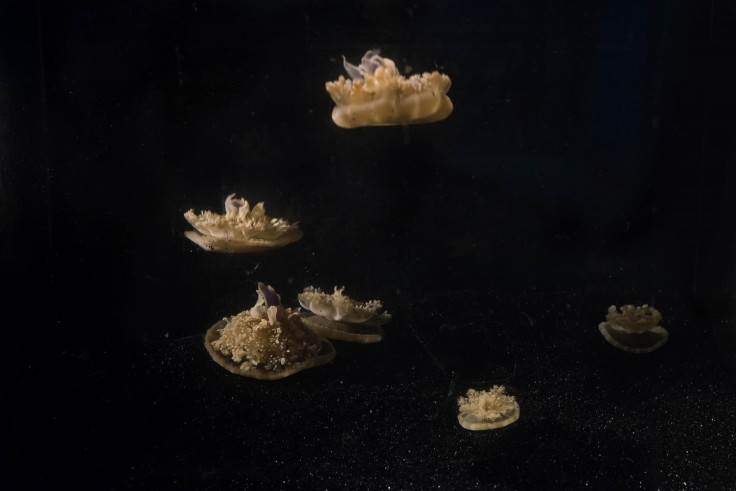First example of sleep is detected in animals without a brain
Researchers observed jellyfish sleeping, suggesting the behaviour evolved before the emergence of a central nervous system in the animal kingdom.

The first evidence of sleep in animals which don't have brains has been observed in a type of upside-down jellyfish, according to researchers.
The results of the study, published in the journal Current Biology, suggest that the ability to sleep in animals evolved further back in the evolutionary process than previously thought - before the emergence of a centralized nervous system.
Research shows that all vertebrates – or animals with spines – that have been studied, sleep. But whether the same is true for invertebrates – those without spines – remains something of mystery.
For co-author of the study Paul Sternberg from the California Institute of Technology (Caltech), the big question is trying to determine whether all animals sleep.
Studies have found evidence of sleep in a handful of invertebrates – for example, fruit flies and a type of roundworm called Caenorhabditis elegans. However, these species do have brains and a central nervous system.
Sternberg and his collaborators at Caltech wanted to see if they could observe sleep in more primitive animals.
So, they decided to study Cassiopea, a largely stationary jellyfish that lives in mangrove swamps, mudflats and other warm shallow waters. Unlike most jellyfish, they rest upside-down on the sea floor with their tentacles protruding upwards. However, they do contract and relax their bodies in steady, rhythmic pulses like others of their kind.
To see if they could observe Cassiopea sleeping, the researchers carried out a series of tests.
Firstly, the team videoed the jellyfish at night and during the day to compare the number of individual pulses. They found that at night time, the Cassiopea pulsed less frequently - the first indication that they might be sleeping. Furthermore, if bits of food were dropped in their tank, they became more active.
"It's like the odour of coffee permeating your consciousness in the morning," said Sternberg.
The fact that the jellyfish appeared to quickly re-energise themselves suggested to the researchers that they had not fallen into a coma or become paralysed.
In another experiment, the team found evidence of grogginess when the jellyfish were forced to react to a stressful situation at night. This delayed response is typical of animals waking up from sleep.
And finally, the researchers shot jets of water at the jellyfish for 6 or 12 hours at night to stimulate them, finding that they were less active the next day, suggesting they had lost out on important rest.
"Jellyfish are the most evolutionary ancient animals known to sleep. This finding opens up many more questions: Is sleep the property of neurons? And perhaps a more far-fetched question: Do plants sleep?" said Ravi Nath, one of the authors of the study.
© Copyright IBTimes 2024. All rights reserved.





